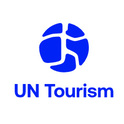Sustainability on the Frontline of Online Education
A new series of online training sessions for hospitality businesses, focusing on community engagement, energy and greenhouse gases, as well as food and water management, has been developed by Booking.com in collaboration with UN Tourism. The courses have been launched on the Tourism Online Academy (TOA), a collaborative project between UN Tourism and IE University.
The four Massive Open Online Courses (MOOCs) address crucial aspects of sustainability to drive change in production and consumption patterns. While targeted at hospitality businesses, the courses are also available to the general public. They focus on:
- Energy and climate action: For hospitality, efficient energy use and reducing greenhouse gases are steps towards more resilient operations. The industry can play an important role in the fight against climate change while also reducing operational costs.
- Food management: In this area, adopting sustainable practices is key to minimizing waste, supporting local economies, and promoting healthier, more responsible consumption patterns.
- Water efficiency: With water as an increasingly scarce resource in many parts of the world, these online courses will help hospitality businesses reduce wastage and boost efficiency.
- Community engagement: Lastly, engaging with local communities is pivotal in fostering a model that empowers the very heart of tourism destinations – their people – while providing vibrant tourism experiences.
All the courses are available on the UN Tourism Online Academy free of cost and offer the possibility of obtaining a certificate of completion for a symbolic fee. Access the courses here:
- Your Journey to More Sustainable Energy Management
- Your Journey to More Sustainable Food Management
- Your Journey to More Sustainable Water Management
- Your Journey to More Sustainable Community Engagement
This online education initiative led by Booking.com supports the implementation of the One Planet Sustainable Tourism Programme which UN Tourism leads in collaboration with UNEP.
Related Links
About UN Tourism
The World Tourism Organization (UN Tourism) is the United Nations agency responsible for the promotion of responsible, sustainable and universally accessible tourism.
As the leading international organization in the field of tourism, UN Tourism promotes tourism as a driver of economic growth, inclusive development and environmental sustainability and offers leadership and support to the sector in advancing knowledge and tourism policies worldwide.
Our Priorities
Mainstreaming tourism in the global agenda: Advocating the value of tourism as a driver of socio-economic growth and development, its inclusion as a priority in national and international policies and the need to create a level playing field for the sector to develop and prosper.
Promoting sustainable tourism development: Supporting sustainable tourism policies and practices: policies which make optimal use of environmental resources, respect the socio-cultural authenticity of host communities and provide socio-economic benefits for all.
Fostering knowledge, education and capacity building: Supporting countries to assess and address their needs in education and training, as well as providing networks for knowledge creation and exchange.
Improving tourism competitiveness: Improving UN Tourism Members' competitiveness through knowledge creation and exchange, human resources development and the promotion of excellence in areas such as policy planning, statistics and market trends, sustainable tourism development, marketing and promotion, product development and risk and crisis management.
Advancing tourism's contribution to poverty reduction and development: Maximizing the contribution of tourism to poverty reduction and achieving the SDGs by making tourism work as a tool for development and promoting the inclusion of tourism in the development agenda.
Building partnerships: Engaging with the private sector, regional and local tourism organizations, academia and research institutions, civil society and the UN system to build a more sustainable, responsible and competitive tourism sector.
Our Structure
Members: An intergovernmental organization, UN Tourism has 160 Member States, 6 Associate Members, 2 Observers and over 500 Affiliate Members.
Organs: The General Assembly is the supreme organ of the Organization. The Executive Council take all measures, in consultation with the Secretary-General, for the implementation of the decisions and recommendations of the General Assembly and reports to the Assembly.
Secretariat: UN Tourism headquarters are based in Madrid, Spain. The Secretariat is led by the Secretary-General and organized into departments covering issues such as sustainability, education, tourism trends and marketing, sustainable development, statistics and the Tourism Satellite Account (TSA), destination management, ethics and risk and crisis management. The Technical Cooperation and Silk Road Department carries out development projects in over 100 countries worldwide, while the Regional Departments for Africa, the Americas, Asia and the Pacific, Europe and the Middle East serve as the link between UN Tourism and its 160 Member States. The Affiliate Members Department represents UN Tourism's 500 plus Affiliate members.
UN Tourism Communications Department
+34 91 567 8100
UN Tourism
